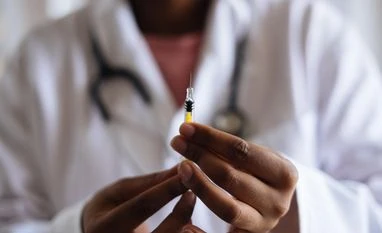Ghana has become the first country in the world to approve an effective malaria vaccine developed at Oxford University.
The R21/Matrix-M vaccine, the first to exceed the World Health Organization (WHO)'s target of 75 per cent efficacy, has been approved for use in children aged 5-36 months, the group most at risk of malaria death.
“It is hoped that this first crucial step will enable the vaccine to help Ghanaian and African children to effectively combat malaria,” the University said in a statement.
Professor Adrian Hill, chief investigator of the R21/Matrix-M vaccine program and director of the University’s Jenner Institute, said, "This marks a culmination of 30 years of malaria vaccine research at Oxford with the design and provision of a high efficacy vaccine that can be supplied at adequate scale to the countries who need it most."
Vaccine's efficacy
According to WHO, an estimated 619,000 people died from malaria in 2021, with the vast majority of them being children in Sub-Saharan Africa. In Ghana, where the disease is both endemic and perennial, an estimated 5.3 million cases and 12,500 deaths were recorded.
More From This Section
The WHO has yet to recommend the R21 vaccine for widespread use, and until it does, the amount of international funding available for it is in doubt. The vaccine's phase 3 trial is currently underway, but previous trials showed efficacy levels of 77 per cent, which was maintained after a single booster dose given a year later.
In contrast, the RTS,S vaccine, which the WHO recommended for use in a historic move in 2021, has lower efficacy levels.
SII to produce over 200 million doses per year
The biotechnology behemoth Serum Institute of India, which is producing the R21 vaccine, has stated that it has the capacity to produce more than 200 million doses per year.
Adar Poonawalla, CEO of the Serum Institute, said that the vaccine's approval by Ghanaian authorities is a significant step forward in the fight against malaria.
"Developing a vaccine to greatly impact this huge disease burden has been extraordinarily difficult,” he said.
“We remain steadfast in our commitment to scaling up production of the vaccine to meet the needs of countries with high malaria burden and to support global efforts towards saving lives," Poonawalla added.
)